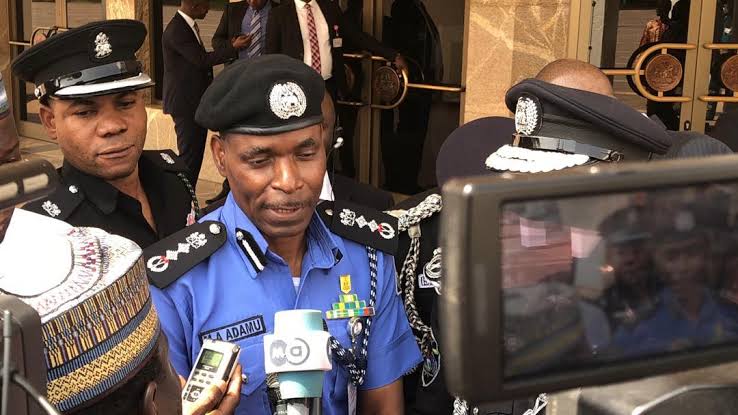Inspector-General of Police (IGP) Muhammad Adamu yesterday said the solution to insecurity in the country is to take policing back to the people at the grassroots level through community policing.
He charged state governments to take responsibility by ensuring that they tackle issues that lead to crime like unemployment, education or issues that require urgent interventions.
Adamu also urged chairmen of local government areas to take responsibility and not leave everything to the security agencies alone.
He spoke to journalists shortly after meeting with the Senate over insecurity, which lasted four hours.
Senate President, Ahmad Ibrahim Lawan, had summoned the IGP to brief the upper chamber on efforts to address escalating insecurity in the country.
Lawan, who welcomed lawmakers back from a six-week recess, promised to vigorously pursue implementation of community policing, as a way of tackling the growing spate of killings and kidnappings across the country.
Adamu said, “We met today and I briefed them on community policing. Last year, we sensitised the whole country on the need for community policing.
“The concept is to give policing back to the communities and let them take the initiative in identifying the challenges that can lead to crimes and then we work with the communities to handle the crime.
“What we are saying essentially with is that fighting crime should not be left to the law enforcement agencies alone.”
He, therefore, enjoined state governments, governors and local government chairmen to take up the responsibility
Besides, the Senate yesterday gave a two-week ultimatum to Ministries, Departments, and Agencies (MDAs) to appear before its Committee on Local and Foreign Debts to defend President Muhammadu Buhari’s loan request before the National Assembly.
Lawan stated this following a point of order raised by the Chairman of the Committee, Clifford Ordia (PDP–Edo Central).
Coming under Order 43 of the Senate Rules, Ordia bemoaned the failure of relevant MDAs to appear before the committee to defend the proposed allocation of funds for projects under their supervision and captured in President Buhari’s loan request.
The MDAs yet to appear before the committee is, ministries of Education, Power, Water Resources, Communication, and Digital Economy, Health, Humanitarian Affairs, Agriculture and the Niger Delta Development Commission (NDDC).
Meanwhile, Senate also urged the Ministry of Humanitarian Affairs and Disaster Management to provide relief materials for victims of communal clashes in Bassa Council Area of Kogi State where no fewer than 100 persons were killed.
It also urged the ministry to provide minimal seed capital for women and youths in the affected communities to facilitate their various economic activities.
This followed a motion of urgent national importance under order 42 and 52 of Senate rules, moved by a representative of Kogi East Senatorial District, Isah Jibrin Echocho.
“Communal hostilities ravaged most parts of Bassa Council Area in 2016 and 2019, rendering over 100,000 residents of the communities homeless, leading to their exodus to other parts of the state,” he said.
